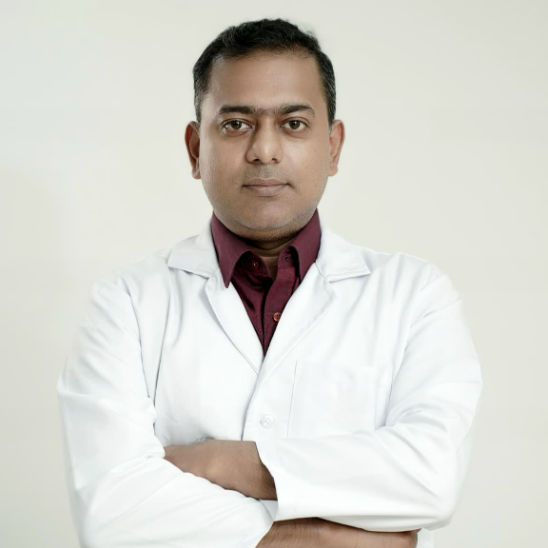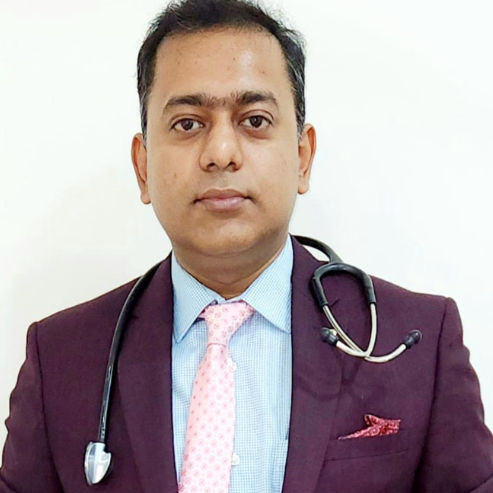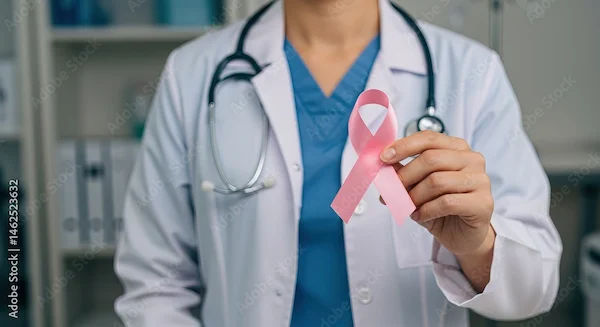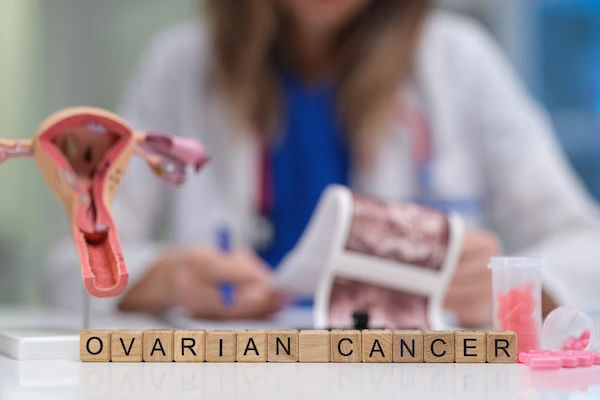Follow-Up Care After Cancer
Understand how follow-up care after cancer treatment can encourage survivors to live a better life, tackling the chances of recurrence. From developing a follow-up care plan to tackling the challenges, this blog addresses it all.

Written by
Last updated on 13th Jan, 2026
The term “follow-up care” defines the routine tests, check-ups, and lifestyle changes that cancer survivors undergo post-treatment. Follow-up care helps detect new health issues, risks of recurrence, and control chronic side effects. This proactive method delivers better results and improved well-being for cancer survivors.
The main goal of follow-up care for cancer patients is to assess whether the disease has returned or spread to other parts of the body.
Some of the other goals of follow-ups include:
Promoting a healthier lifestyle
Monitoring recurrence risks and any remnant cancer cells
Managing post-treatment physical and emotional aftereffects
Offering survivors and their families access to support networks
Components of Follow-Up Care
Follow-up care includes various important methods that work together for a survivor’s well-being.
Medical Check-Ups and Monitoring: Regular check-ups with a healthcare professional are essential for follow-up care. These include physical exams, blood tests, and imaging scans to monitor health and detect any issues early. The frequency depends on the cancer type, treatment, and remission period. Survivors should maintain a structured follow-up schedule to keep medical records updated.
Cancer Surveillance and Screening: The main goals of cancer surveillance are to monitor and screen for recurrences and secondary cancers. Individual risk factors and the cancer type are taken into account when designing tests to ensure early detection.
Managing Long-Term Side Effects: Cancer treatments are a cause of frequent long-term or late-onset side effects, such as fatigue, neuropathy, and lymphedema. Follow-up care can help address these concerns through medication, therapy, or other interventions.
Emotional and Psychological Support: Emotional well-being is as vital as physical health. Cancer survivors may experience post-traumatic stress disorder (PTSD), anxiety, or depression. Fortunately, these challenges can be overcome through access to mental health resources, support groups, and counselling.
Developing a Follow-Up Care Plan
It is important to create a follow-up care plan to deal with post-treatment issues or health risks.
1. Collaborating with Healthcare Providers
A good follow-up care plan needs close collaboration between survivors and healthcare professionals. In many cases, specialists, primary care physicians, and oncologists collaborate to create detailed individualised treatment suited to individual needs.
2. Personalised Follow-Up Care Plans
There is a need for a personalised follow-up care plan since every survivor’s journey is unique in a sense. These follow-up care plans should consider factors such as:
Type and stage of cancer: Different cancers require specific surveillance methods.
Treatment history: Chemotherapy, radiation, and surgery all have different long-term effects.
Overall health: Survivors may need extra attention due to inherited traits or pre-existing ailments.
Consult Top Experts for Care Advice
Common Health Concerns Post-Cancer Treatment
There are various physical and emotional challenges that a cancer patient may have to face while undergoing treatment. Let’s take a look at some of them.
1. Physical Health Complications
Some of the common physical challenges include:
Fatigue: A chronic state of exhaustion that does not go away with rest.
Issues with the heart or lungs: Especially for people who had cardiotoxic chemotherapy or chest radiation treatment.
Bone health problems: Osteoporosis is common, especially among women who have gone through early menopause or hormone therapy.
2. Emotional and Mental Health Challenges
Given cancer’s infamous nature, it is no surprise that a cancer diagnosis can take a massive toll on the emotional and mental well-being of the patient.
Cancer survivors often experience emotional challenges, including
Fear of recurrence
Body image concerns
Grief
Medical professionals recommend seeking professional support or joining peer networks to cope better.
Lifestyle Recommendations for Cancer Survivors
Survivors can significantly boost their recovery process and overall quality of life by following healthy lifestyle habits.
1. Nutrition and Dietary Guidelines
Healthcare professionals often recommend a change in nutrition and diet post-treatment. Eating a well-balanced diet full of nutritious grains, lean meats, fruits, and vegetables supports overall health and recovery.
One should also avoid processed foods, alcohol, and excessive sugar.
2. Physical Activity and Exercise
Physical activity and exercise are a vital part of recuperation. Regular exercise improves cardiovascular health, lowers stress, and boosts energy.
Moderate activities like walking, swimming, and yoga are a great method to boost physical fitness. However, all of these exercises should be done with proper consultation with the relevant healthcare professionals.
3. Managing Stress and Mental Health
Cancer can be excruciatingly painful on a survivor’s mentality. Healthcare professionals recommend meditation, mindfulness, and other stress-reduction methods to improve mental clarity and reduce anxiety. Partaking in hobbies or creative activities can also be therapeutic.
Understanding Recurrence and Secondary Cancers
Survivors can take charge of their health by being aware of recurrence and preventative methods. It is important to remain vigilant when it comes to cancer post-treatment, as recurrences can often result in the reappearance of cancer and put the survivor at risk.
Symptoms that indicate a recurrence include:
Unexplained weight loss
Persistent pain
Nausea and vomiting
New lumps or swelling
Shortness of breath
The most common preventive measures and risk reduction to lower recurrence include maintaining a healthy lifestyle, attending follow-up appointments, and abstaining from carcinogens like tobacco.
Importance of Genetic Counseling
Genetic counselling can help survivors and their families to learn more about hereditary risks and navigate preventative measures.
Identifying Genetic Risks: Survivors who have a family history of cancer should opt for genetic testing to determine their susceptibility. This can help in better preparedness through personalised screening and prevention plans.
Guidance and Recommendations: Cancer survivors often need guidance to help reduce the mental and physical toll post-treatment. Genetic counsellors offer personalised guidance to survivors on risk management, self-check options, and lifestyle changes for high-risk individuals.
The Role of Support Networks
Support networks, be it family and friends or communities, are important in helping cancer survivors in overcoming challenges in life post-treatment.
Family and Friends: For survivors, support from family and friends is an absolute necessity. Their assistance can range from accompanying survivors to medical appointments to helping with day-to-day tasks. These relationships are the best when both parties are honest and open with each other.
Cancer Support Groups and Community Resources: Support groups play a massive role in post-treatment care for any disease, let alone cancer. Cancer support groups give survivors a chance to share their stories and experiences and learn from others who have been through the same.
Community organisations often set up workshops, counselling, and recreational events to help people foster new relationships within the community.
Addressing Financial and Insurance Concerns
It can be tough to understand insurance policies, particularly when it involves the cost of follow-up care. In these cases, social workers or patient advocates act as a lifeline to help survivors understand the coverage and, if needed, fight denials.
Since cancer treatment can be costly, there are many organisations, including local charities and NGOs, that offer financial counselling, transportation assistance, and grants to help lessen the financial burden of the treatment.
Conclusion
Follow-up care is a detailed strategy to help maintain health and well-being post-treatment. It includes lifestyle counselling, emotional support, and medical monitoring to help survivors lead healthy life post-treatment.
Medical professionals often urge survivors to use proactive care, use all available resources, and stay informed. Life post-cancer can seem daunting, but with proper care and support, it can help survivors recuperate.
Consult Top Experts for Personalised Treatment
Consult Top Experts for Personalised Treatment

Dr. Rupam Manna
Radiation Specialist Oncologist
7 Years • MBBS MD(RADIO THERAPY), CCEBDM
Barasat
Diab-Eat-Ease, Barasat

Dr. Sanchayan Mandal
Medical Oncologist
17 Years • MBBS, DNB Raditherapy, DrNB Medical Oncology
East Midnapore
VIVEKANANDA SEBA SADAN, East Midnapore

Dr Gowshikk Rajkumar
Oncologist
10 Years • MBBS, DMRT, DNB in Radiation oncology
Bengaluru
Apollo Clinic, JP nagar, Bengaluru

Dr. Sanchayan Mandal
Medical Oncologist
17 Years • MBBS, DrNB( MEDICAL ONCOLOGY), DNB (RADIOTHERAPY),ECMO. PDCR. ASCO
Kolkata
MCR SUPER SPECIALITY POLY CLINIC & PATHOLOGY, Kolkata

Dr.sanchayan Mandal
Medical Oncologist
17 Years • MBBS, DrNB( MEDICAL ONCOLOGY), DNB (RADIOTHERAPY),ECMO. PDCR. ASCO
Kolkata
Dr. Sanchayan Mandal Oncology Clinic, Kolkata
Consult Top Experts for Care Advice

Dr. Rupam Manna
Radiation Specialist Oncologist
7 Years • MBBS MD(RADIO THERAPY), CCEBDM
Barasat
Diab-Eat-Ease, Barasat

Dr. Sanchayan Mandal
Medical Oncologist
17 Years • MBBS, DNB Raditherapy, DrNB Medical Oncology
East Midnapore
VIVEKANANDA SEBA SADAN, East Midnapore

Dr Gowshikk Rajkumar
Oncologist
10 Years • MBBS, DMRT, DNB in Radiation oncology
Bengaluru
Apollo Clinic, JP nagar, Bengaluru

Dr. Sanchayan Mandal
Medical Oncologist
17 Years • MBBS, DrNB( MEDICAL ONCOLOGY), DNB (RADIOTHERAPY),ECMO. PDCR. ASCO
Kolkata
MCR SUPER SPECIALITY POLY CLINIC & PATHOLOGY, Kolkata

Dr.sanchayan Mandal
Medical Oncologist
17 Years • MBBS, DrNB( MEDICAL ONCOLOGY), DNB (RADIOTHERAPY),ECMO. PDCR. ASCO
Kolkata
Dr. Sanchayan Mandal Oncology Clinic, Kolkata




